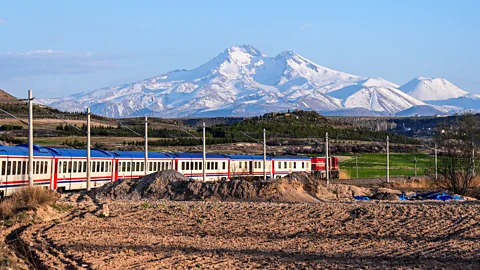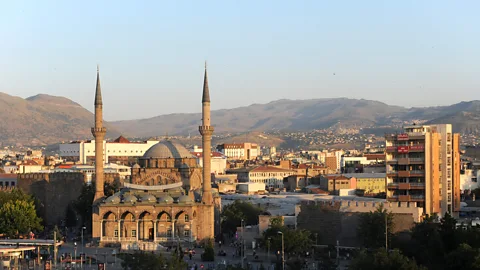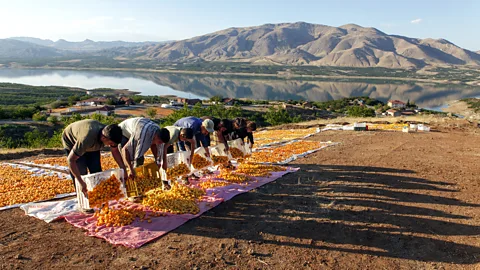Turkey’s new Mesopotamia Express takes visitors through the country’s rich history
3 min read20 hours ago
By Lynn Brown
 Getty Images
Getty ImagesRunning 1,051km from Ankara to Diyarbakır, it passes through stark, mountainous landscapes and some of the country’s most important historical sites.
Train travel is having a moment. From the Tren Maya in Mexico to the European Sleeper connecting Brussels and Prague, a host of new train lines are transporting travellers around the world. And many train companies are even expanding their luxury rail experiences, such as the Orient Express’ new La Dolce Vida train that tours Italy in glamourous mid-century style.
According to Yesh Munnangi, CEO of global travel planning site Rome2Rio, train travel is experiencing a surge in demand. “Rome2Rio’s train search data reveals a staggering 170% increase since 2019 pre-Covid volumes,” Munnangi tells the BBC.
The latest example of this trend is Turkey’s new Mesopotamia Express, which opened in April 2024. Building on the popularity of the country’s Eastern Express train, which launched in 2019, the new route will take visitors on an epic journey through Turkey’s central Anatolia region, an area rife with history and culture. Running 1,051km from the capital city of Ankara to Diyarbakır, a city with thousands of years of human history, the route passes through stark, mountainous landscapes and some of the country’s most important historical sites.
 Getty Images
Getty ImagesAccording to officials, the launch of the Mesopotamia Express is part of a larger nationwide initiative to encourage visitors to explore beyond popular destinations like Istanbul and Antalya, which were recently declared two of the world’s most-visited cities.
“Turkey aims to spread tourism across 81 provinces and has been sustaining various efforts for this goal,” says Geoffrey Weill, president of Weill Associates, which represents the Türkiye Tourism Promotion and Development Agency (TGA). “One such effort is to improve the country’s extensive, low-impact railway network with investments and high-speed trains.”
The Mesopotamia Express accommodates up to 180 passengers and offers locally sourced traditional Anatolian cuisine in the dining car, such as kelecoş a fried meat dish on flatbread. The total trip takes 24 hours, stopping for around three to four hours at each destination so visitors can explore local sites and culture.
“[The Mesopotamia Express] provides tourists with a comprehensive and immersive experience highlighting the region’s rich cultural heritage, historical significance and natural beauty,” says Weill. “It’s not an ordinary train ride but a journey through time, traversing stunning Turkish landscapes and uncovering the country’s hidden cultural gems.”
After departing Ankara, the train’s first stop is the city of Kayseri, considered the gateway to the Cappadocia region. The city is well known for its labyrinthine bazaars and ancient Turkish architecture, as well as the spectacular Mount Erciyes, an inactive volcano that’s popular among climbers and skiers.
 Getty Images
Getty ImagesThe train then heads for Malatya, one of Anatolia’s largest cities. This area has been a crossroads for both trade and cultural exchange between East and West for nearly 7,000 years. Visitors riding the rails in summer can hop off to find the annual apricot festival here, which takes place 20-22 July and celebrates the region’s most well-known export.
Built in the shadow of the ancient city of Harput, Elazig is the train’s next stop. It’s a perfect place to explore the breadth of Turkey’s history, from the Unesco World Heritage site of Harput Castle to the Izzet Pasha mosque built in 1866.
The final stop is the walled city of Diyarbakır. Built in 297 CE by the Romans, the Diyarbakır Fortress is another of Turkey’s many Unesco World Heritage sites, as are the nearby Hevsel Gardens.
The Mesopotamia Express isn’t the only new train to launch in the country: another tourist train, the Vangolu Express, which travels between Ankara and Tatvan, also made its inaugural trip recently. Both can be booked through Turkish State Railways.




